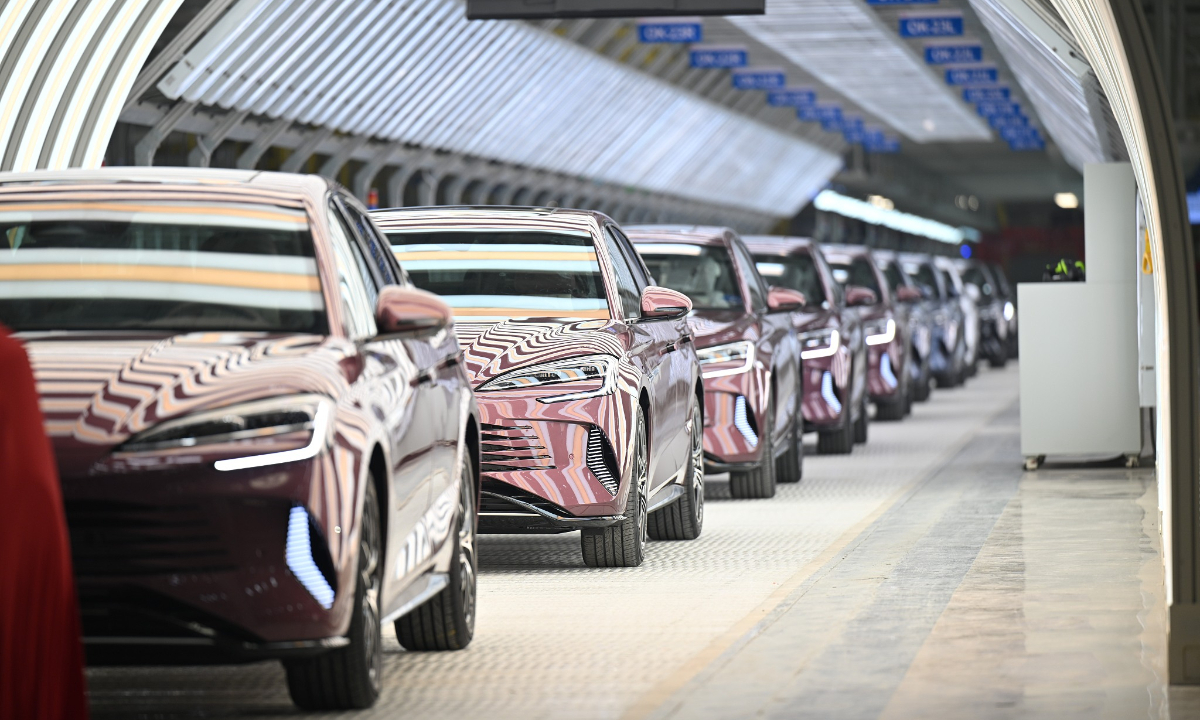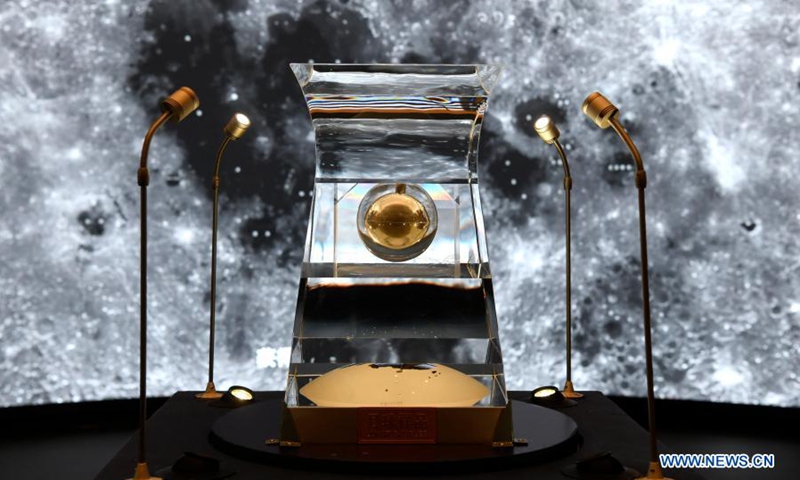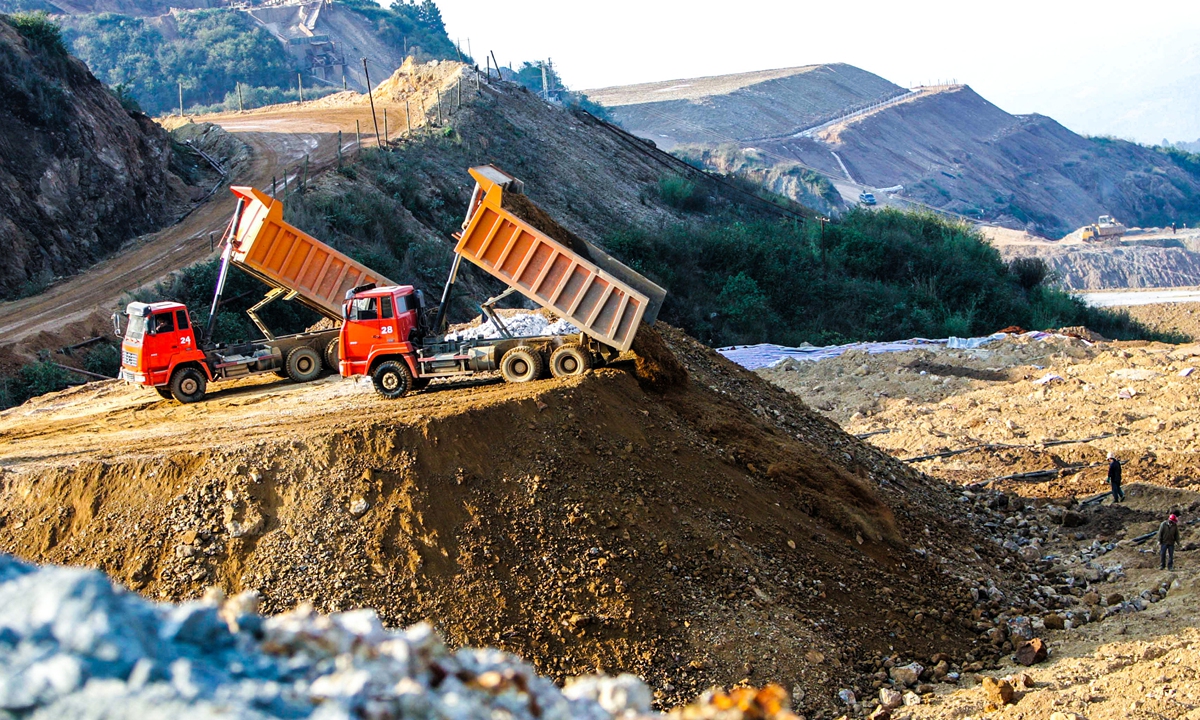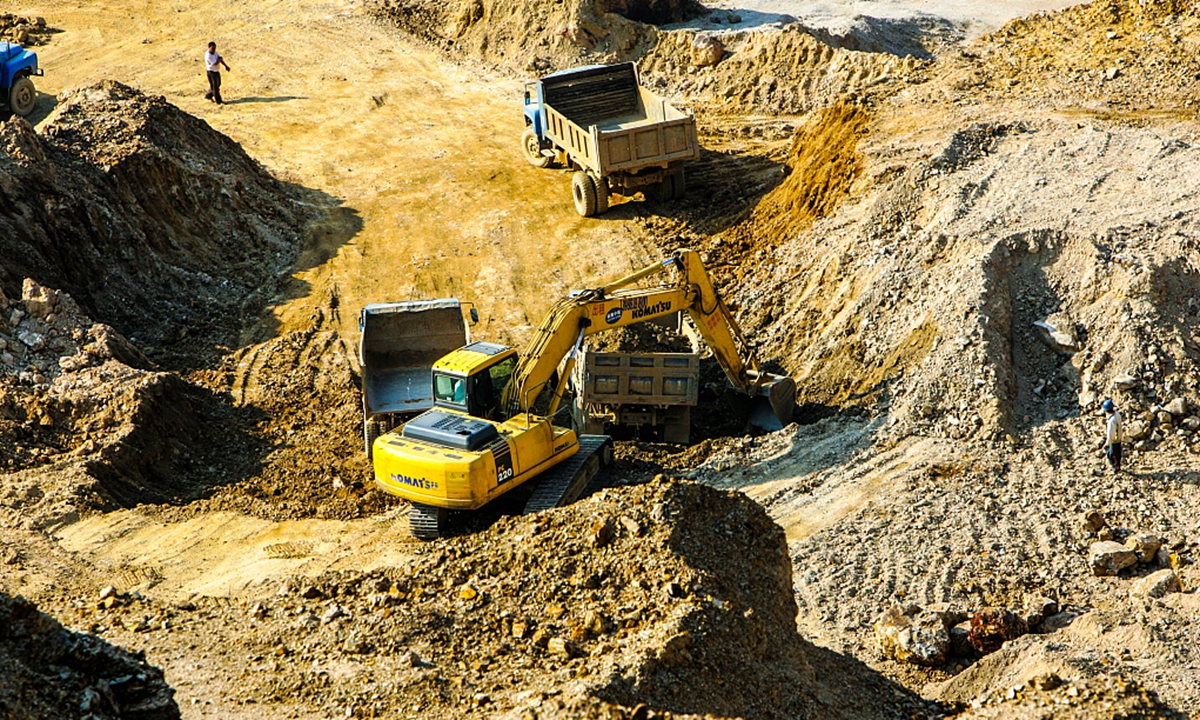US scheme to reduce key mineral reliance on China ‘futile’ given nation’s dominance
Western economies urged to boost green transition

EV Photo:VCG
US Trade Representative Katherine Tai said that "significant progress" had been made on a US-UK critical minerals agreement in talks over the weekend in Japan. While the deal seems to benefit its allies, the real purpose of the US is to reduce the international competitiveness of Chinese-made electric vehicles (EVs) and reduce reliance on China's minerals, Chinese observers said on Monday.
However, they said the US scheme is futile and will backfire. China's EV industry has a cost advantage, and many key minerals used in the sector such as lithium and nickel are non-renewable and, as a result, Western countries will be cautious about taking real action in the future, they said.
Tai issued a statement after meeting with British business and trade minister Kemi Badenoch.
The US and the UK have been negotiating a critical minerals agreement that would allow key EV minerals - cobalt, graphite, lithium, manganese and nickel - that are extracted or processed in the UK to count toward tax credits for clean vehicles offered under the US Inflation Reduction Act.
The US signed a Critical Minerals Agreement with Japan on March 28 and started talks with the EU on a similar agreement in March. According to the US-Japan agreement, the purpose is to "strengthen and diversify critical minerals supply chains and promote the adoption of electric vehicle battery technologies."
"The real purpose behind the US call for supply chain diversification and 'de-risking' is to crack down on the competitiveness of Chinese EV makers by striving to control critical minerals," Li Yong, a senior research fellow at the China Association of International Trade, told the Global Times on Monday.
However, critical mineral agreements by the US and its allies have a limited impact on China's EV and mineral sectors, analysts said.
"Chinese-made EVs still have a cost advantage. Meanwhile, Chinese power battery and EV makers are also stepping up localization overseas, and they could still explore new markets in emerging economies," Li said.
Despite their political slogans, Western countries will be very cautious about taking action in the future, as China is one of the world's major exporters of critical minerals, Lin Boqiang, director of the China Center for Energy Economics Research at Xiamen University, told the Global Times on Monday.
Many of the minerals critical for the global green transition are from China. Data showed that China supplies about 90 percent of the world's gallium, 78 percent of the rare earths and 79 percent of the silicon, according to media reports.
Protectionism by the US and its allies is unlikely to affect China's exports of critical minerals because they are relatively rare and their supply is tight, Lin said, noting that the development and innovation of the global EV industry may be negatively affected.
Addressing the climate crisis and accelerating the global clean-energy economy needs all countries to work together to optimize the allocation of resources so as to reduce costs and make clean energy cheaper. In this sense, China's supply chain advantage benefits the world as a whole, Lin said.
As for countermeasures, Li said that China could launch lawsuits against the US at the WTO, since Washington has violated WTO rules by adopting measures that apply only to a certain group of trade partners.
Following China's export restrictions on industrial products and materials containing gallium and germanium starting from August 1, 2023, the country announced on October 20 that it will impose export controls on certain graphite materials and related products in line with common international practice.



